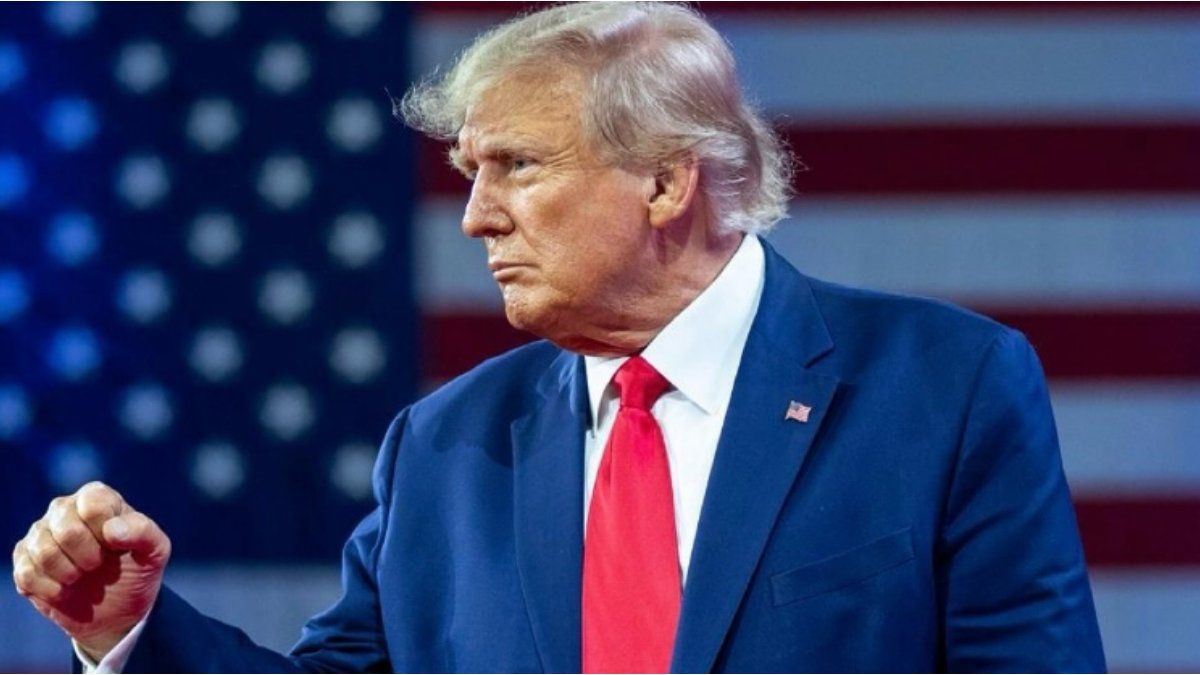Donald Trump’s Republicans promise to pick up the pace when they take full control of the US Congress next year, with few obstacles to implementing the president-elect’s promises to reduce taxes and reorder global trade.
However, the Treasury bond market, with a debt of $28 trillion, is issuing warning signals against excessively increasing a burden that is already growing at a rate of $2 trillion annually.
It remains to be seen whether these concerns will be enough to curb the ambitions of Republican lawmakers or push them back. to find savings that offset an agenda of tax cuts estimated at almost $8 trillion over 10 years.
The effects of the Trump plan
Markets are betting that Trump’s tax and tariff cuts will boost inflation as investors demand higher yields on long-term Treasury bonds. 10-year bond yields have risen to 4.4%, about 75 basis points since the “Trump operations” began to dominate Wall Street in late September.
That trend sent interest rates on mortgages, auto loans and credit card debt soaring, offsetting the Federal Reserve’s rate cuts and increasing the risk to U.S. economic growth.
In addition, it also increased the cost of financing US deficits and eating into the federal budget. Interest on the public debt surpassed $1 trillion for the first time during the fiscal year, which ended Sept. 30, becoming the second-largest expense after the Social Security retirement program.
“In a curious way, the bond market is about to run this country,” said David Schweikert, a Republican representative and member of the House Ways and Means Committee, focused on taxes and trade.
Concern about the influence of bond market on Trump’s agenda is more the exception than the norm among congressional Republicans interviewed by Reuters about two weeks after his electoral victory on November 5 and when his party assumed control of Congress.
Some turned to the party’s long-standing view that tax cuts can be self-financing with higher growth, an idea that was used to promote Trump’s tax cuts in 2017. Budget forecasters, including the Joint Committee on Taxation, have It is estimated that those cuts added more than $1 trillion to deficits over 10 years.
Still, Republican Sen. Mike Rounds said he believed the stability and growth that will come from extending Trump’s 2017 tax cuts will ease some of the market’s concerns. “What we have to do is show them that we are going to build an economy so that the relationship between the size of the economy and the debt changes positively in our favor,” he said.
Musk’s cuts
House Budget Committee Chairman Jodey Arrington said accelerating economic growth to more than 3% annually – already at that pace in the third quarter – would increase revenues by $3 trillion over a decade. but that additional spending cuts would be necessary.
Trump and Elon Musk.jpg
Despite these concerns, many Republicans believe that the economic growth resulting from the tax cuts will help alleviate the negative effects on deficits and debt.
Rising bond market yields were “a motivating factor in reducing deficit spending,” he said. Arrington and Republican Rep. Joe Wilson said they hoped the nongovernmental panel led by the billionaire CEO of Tesla and SpaceX, Elon Muskand former presidential candidate Vivek Ramaswamy could find ways to cut the budget, including “mandatory spending” programs other than Social Security and the Medicare health program for the elderly, which Trump has promised to preserve. “With Elon Musk I think we have a real opportunity to identify waste and cut what can be cut,” Wilson said.
A key objective is repeal Democratic President Joe Biden’s clean energy subsidiesestimated by the CBO at nearly $800 billion over 10 years, and about $60 billion in funding to modernize the Internal Revenue Service, although that would expand long-term deficits by cutting audits.
Uncertain future
Republicans in the new year are likely to rely on budget procedures that circumvent Senate rules, which require 60 of the chamber’s 100 members to agree on most legislation to pass Trump’s tax agenda with a simple majority.
Republican Sen. Mike Crapo, the incoming chairman of the Senate Finance Committee, said it was still too early to determine what tax policies would be included in the initial legislation, adding that there was a market “misunderstanding” about what Trump is doing or going. to do. “A lot of people are saying, well, what tax policies are you going to implement?“Crapo said.”And the answer to that is, the ones that we discover are correct.“.
Source: Ambito




